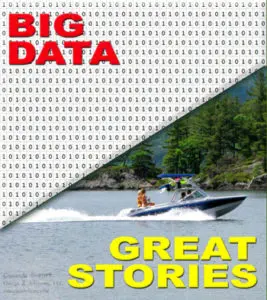Big Data Versus Great Stories, And The Winner Is . . .
It’s simple. When it’s big data versus great stories, great stories win. Thus, when data and stories conflict, stories win. Thus, the biggest challenges to successful application of data analysis are human biases.
Now, almost everyone who reads this will think, “Well, that’s their problem, not mine. I know the effect of biases.” Guess what? That’s a bias. It’s called the bias blind spot.

Power Of Stories
Stories have tremendous power. They increase value. They increase social power and status. Yet, stories have dark uses too. They retard change. They retard learning. Stories retard the acceptance of data analysis. This is the base-rate neglect bias.
This power becomes greater when those stories are highly personal. This can take two forms. First, it’s the person’s own story. Second, the person relates highly to the story.
In the first, it’s the story of the person studying finance in college. In the second, it’s the story of another who studied finance in college too. Our first person relates to the second. That will cause the first to see more favorable qualities to the second in spite of data to the contrary. That’s the fundamental attribution error bias.
Overcoming Great Stories With Data Stories
In general, to overcome great stories when presenting data, one needs great stories too. Two types exist.
The first type counters the entrenched stories in the other person. That means knowing the stories we’re up against. Our story might state why the other is false or incomplete.
The second type follows the normal course of any story. It supports the conclusions and recommendations of the data. The story gives life to all three.
Big Data Versus Great Stories
It’s easy for data analysts to see power in their data. The more they work them the more they own data. Yet, people overvalue what they own. It’s the endowment effect bias.
Therefore, one’s enthusiasm for the data will only go so far. It can’t overcome the great stories by which another lives though. In the end, the data will also need a great story of their own.


